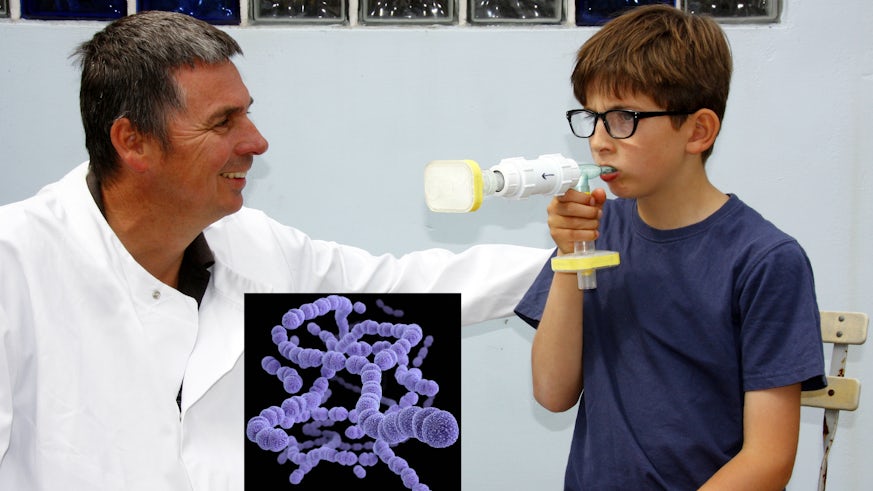Towards improving pneumonia diagnosis
20 November 2015

Scientists at the University’s School of Medicine have received a major grant from the Bill & Melinda Gates Foundation to develop a new tool capable of rapidly diagnosing pneumonia.
Pneumonia is the leading infectious cause of death in children worldwide, accounting for 15% of all deaths of children under five years old. Although the condition can be treated by antibiotics, delayed and ineffective diagnosis means that only one third of children receive the antibiotics they need.
The award of $100,000 to a team led by the School of Medicine’s Dr Bastiaan Hoogendoorn is part of a $100 million dollar initiative called the Grand Challenges Explorations. It funds individuals worldwide to explore ideas that can break the mould in how persistent global health and development challenges are solved.
To receive funding, Dr Hoogendoorn and other Grand Challenges Explorations winners demonstrated in a two-page online application a bold idea in one of five critical global heath and development topic areas.
The research will be done in collaboration between Dr Hoogendoorn and Dr Clive Gregory at the School of Medicine; Dr Jenna Bowen and Dr Chris Allender at the School of Pharmacy and Pharmaceutical Science; together with Dr Colin Powell at the The Noah's Ark Children's Hospital for Wales.
Speaking of the award, Dr Hoogendoorn said: “Our inter-disciplinary group will initiate the development of a point-of-care exhaled-breath analysis instrument that will allow the rapid differentiation of Gram-positive and Gram-negative bacterial infection and non-bacterial infection in children with pneumonia.
“In doing so, we will enable rapid, accurate diagnosis, allowing timely administration of appropriate therapies that in turn will help to alleviate the human cost associated with the condition.”
Launched in 2008, over 1160 projects in more than 60 countries have received Grand Challenges Explorations grants. The grant program is open to anyone from any discipline and from any organization. The initiative uses an agile, accelerated grant-making process with short two-page online applications and no preliminary data required. Initial grants of US$100,000 are awarded two times a year. Successful projects have the opportunity to receive a follow-on grant of up to US$1 million.